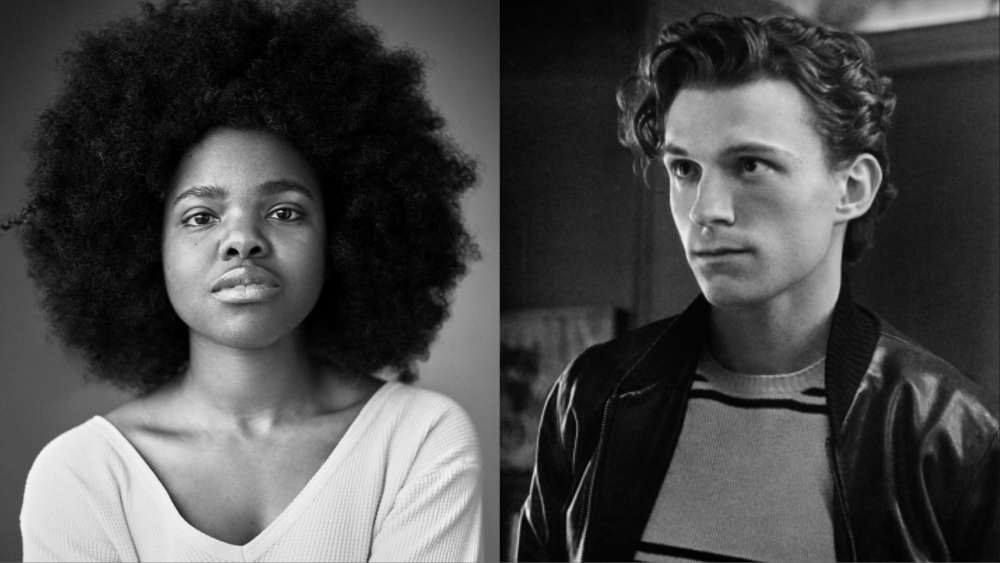The Jamie Lloyd Company has hit back after its production of Shakespeare’s “Romeo & Juliet” has been the subject of what they call a “barrage of deplorable racial abuse” aimed at an unnamed cast member.
The play, directed by Jamie Lloyd (“Sunset Boulevard”), stars “Spider-Man: No Way Home” star Tom Holland as Romeo and Francesca Amewaduh-Rivers (“Sex Education”) as Juliet.
On Friday, the Jamie Lloyd Company issued a statement, saying: “Following the announcement of our ‘Romeo & Juliet’ cast, there has been a barrage of deplorable racial abuse online directed towards a member of our company. This must stop.”



I don’t know if it is intentional or not, I try not to assign a motive to opinions, but your viewpoint seems to require that black characters have a justification for being black in a way that you don’t for white characters. I think there’s a difference between mere change, such as Annie or Little Mermaid, and incongruous change, such as whitewashing Wakanda, since it is intended to be a cloistered black nation in sub-Saharan Africa.
I try not to assign a motive to opinions either, so I’ll try to explain further to ensure you can fully understand my viewpoint.
My requirement that a character’s qualities have sufficient justification applies to white characters as well, hence my Wakanda example. As you said, that would be incongruous change, and the thing that makes it incongruous is the fact that you’re dealing with an exception. It’s important to note that, in many works that take place in a version of the real world, especially modern America, white people are assumed, even by non-white viewers, to have an inbuilt justification for existing in a story by virtue of being considered the ethnic majority - not saying that’s a good thing, or a bad thing, just that that assumption exists. Since that is not the case in the context of a cloistered Sub-Saharan African nation, any white characters that appear therefore require more specific explanations for their presence. This is, needless to say, why every white character in Black Panther is a foreigner.
Thinking about it, though, I also realize now that Annie is perhaps a bad example, since the original story also takes place in the United States iirc, and any story set in an American city can automatically be reasonably assumed to have people from all walks of life living there, so no explanations are really needed. Even if you were to also make Daddy Warbucks black, and set it in a time period where a wealthy black man would be considered an unusual or exceptional thing, all you would have to do is have some visual indication of how he got his money (such as a framed business degree, for example), and suddenly his status not only makes sense, it also subtly establishes something about his character (“He defied the odds through hard work and intelligence!”) that can be built upon as the story progresses. In fact, ideally, you want that level of characterization for every character, regardless of whether they’re a minority.
Really, it’s in the more fantastical examples that things start to become muddled, since in-built justifications can’t exist in a world that is not like our own. But that also means that you can be looser with your explanations, since in fantasy settings, internal consistency is more important than realism. In my Little Mermaid example, you probably didn’t question the idea of mermaids looking like humans from the same part of the world, despite the fact that if merfolk were real, they would live underwater and thus have no need to evolve different skin pigmentations. Consistency is the reason for this. But in The Lord of the Rings, which is implied to be set in our own world’s mystical past, dark-skinned humans already exist, and since they come from a far-off continent, their complexion can be reasonably assumed to be way it is for the same reason as in real life: An adaptation to an equatorial climate. So when Rings of Power introduces black elves, and then does NOT have them also come from another part of the world, that consistency is broken unless an alternative explanation is given.
Hopefully I’ve expressed my perspective clearly and concisely. Any type of person can exist in any setting and any story, so long as any concerns about potential inconsistencies are acknowledged and addressed. At the other end of the scale, you can even dismiss those concerns entirely and deliberately tell a story with zero regard for historical accuracy. What matters is that it’s a conscious design decision and that the audience is aware of what to expect going in. Knowing those expectations is a big part of the balancing act of being a writer.